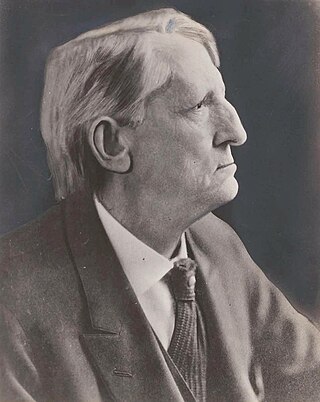Related Research Articles

The Transport and General Workers' Union was one of the largest general trade unions in the United Kingdom and Ireland—where it was known as the Amalgamated Transport and General Workers' Union (ATGWU)—with 900,000 members.
Shanghaiing or crimping is the practice of kidnapping people to serve as sailors by coercive techniques such as trickery, intimidation, or violence. Those engaged in this form of kidnapping were known as crimps. The related term press gang refers specifically to impressment practices in the United Kingdom's Royal Navy.
The British Seafarers' Union (BSU) was a trade union which organised sailors and firemen in the British ports of Southampton and Glasgow between 1911/1912 and 1922. Although of considerable local importance, the organisation remained much smaller and less influential at a national level than the National Sailors' and Firemen's Union, (NSFU).

The National Union of Seamen (NUS) was the principal trade union of merchant seafarers in the United Kingdom from the late 1880s to 1990. In 1990, the union amalgamated with the National Union of Railwaymen to form the National Union of Rail, Maritime and Transport Workers (RMT).
The National Union of Ship's Stewards, Cooks, Butchers and Bakers was the principal trade union for service personnel serving aboard British merchant ships between 1909 and 1921.
The Amalgamated Marine Workers' Union (AMWU) was a trade union of sailors, firemen and ship-board service personnel which existed in the United Kingdom between 1922 and 1927.

The Seafarers International Union or SIU is an organization of 12 autonomous labor unions of mariners, fishermen and boatmen working aboard vessels flagged in the United States or Canada. Michael Sacco was its president from 1988 until 2023. The organization has an estimated 35,498 members and is the largest maritime labor organization in the United States. Organizers founded the union on October 14, 1938. The Seafarers International Union arose from a charter issued to the Sailors Union of the Pacific by the American Federation of Labor as a foil against loss of jobs to the Congress of Industrial Organizations (CIO) and its Communist Party-aligned faction.

Joseph Curran was a merchant seaman and an American labor leader. He was founding president of the National Maritime Union from 1937 to 1973, and a vice president of the Congress of Industrial Organizations (CIO).

The International Christian Maritime Association (ICMA) is an ecumenical association of 26 Christian organisations, Protestant and Catholic, representing different churches and Christian communities actively engaged in welfare work for people who work at sea, including seafarers, fishers and the families of both. The Association is registered as a charity in the UK and, through its members, operates internationally.
The Congress of Irish Unions was a confederation of trade unions in Ireland.

Andrew Furuseth of Åsbygda, Hedmark, Norway was a merchant seaman and an American labor leader. Furuseth was active in the formation of two influential maritime unions: the Sailors' Union of the Pacific and the International Seamen's Union, and served as the executive of both for decades.
The International Seamen's Union (ISU) was an American maritime trade union which operated from 1892 until 1937. In its last few years, the union effectively split into the National Maritime Union and Seafarer's International Union.
The maritime history of the United States is a broad theme within the history of the United States. As an academic subject, it crosses the boundaries of standard disciplines, focusing on understanding the United States' relationship with the oceans, seas, and major waterways of the globe. The focus is on merchant shipping, and the financing and manning of the ships. A merchant marine owned at home is not essential to an extensive foreign commerce. In fact, it may be cheaper to hire other nations to handle the carrying trade than to participate in it directly. On the other hand, there are certain advantages, particularly during time of war, which may warrant an aggressive government encouragement to the maintenance of a merchant marine.
The United States merchant marine forces matured during the maritime history of the United States (1900–1999).

Filipino seamen, also referred to as Filipino seafarers or Filipino sailors, are seamen, sailors, or seafarers from the Philippines. Although, in general, the term "Filipino seamen" may include personnel from the Philippine Navy or the Philippine Marine Corps, it specifically refers to overseas Filipinos who are "sea-based migrant Filipino workers".
The Electrical Trades Union was a trade union representing electrical technicians and engineers in Ireland.
The Energy Services Union is a trade union representing workers at the ESB Group in Ireland.
John Robert Bell was a British trade unionist and political activist.
The Maritime Workers' Union of Nigeria (MWUN) is a trade union representing sailors, dockworkers and those in related trades in Nigeria.
The Maritime and Dockworkers' Union (MDU) is a trade union representing workers in seaports in Ghana.
References
- ↑ "Irish Seafarers & Trade Union Organisation".
- ↑ Obituary (15 October 1916). "Des Branigan: Seaman, archaeological diver and maritime historian". The Irish Times .
- ↑ Smethurst, John B.; Carter, Peter (June 2009). Historical Directory of Trade Unions. Vol. 6. Farnham: Ashgate Publishing. pp. 184–185. ISBN 9780754666837. LCCN 80-151653.
- ↑ Visser, J; Ebbinghaus, Bernard (2000). The Societies of Europe. Palgrave Macmillan. p. 356. ISBN 978-1-349-65513-7.
- 1 2 3 4 5 6 7 8 9 10 Devine, Francis; Smethurst, John B. (2017). Historical Directory of Trade Unions in Ireland (PDF). Dublin: Irish Labour History Society & Working Class Movement Library. Retrieved 23 January 2025.